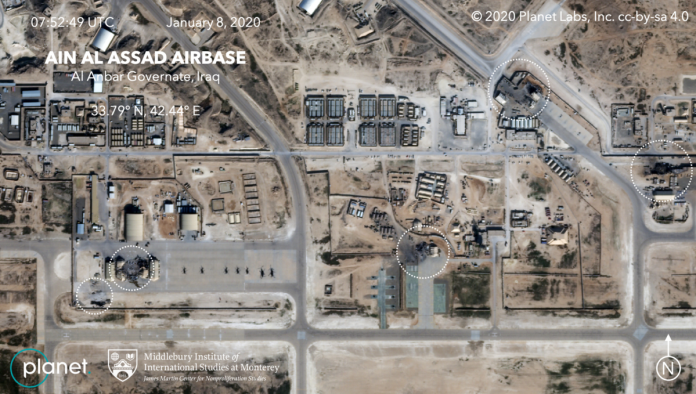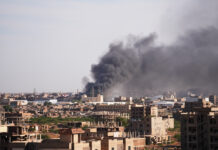The Pentagon has yet again raised the figure of soldiers wounded in Iran’s retaliatory missile attack in Iraq earlier this month to 64, saying they have suffered “traumatic brain injuries.”
Pentagon chief Mark Esper and chairman of the Joint Chiefs of Staff General Mark Milley said on Thursday that the military took these types of injuries “very seriously” after criticism that the authorities sought to whitewash them.
“The number is growing,” Milley added, explaining that it takes time to diagnose and screen soldiers present in the area at the time of the attack.
The New York Times cited a Pentagon statement, which put the total number of injured troops at 68. The report said eight troops were currently being treated in the United States, 21 in Landstuhl, Germany and that another 39 injured troops have returned to military operations in Iraq.
The new tally marks at least the fourth instance where U.S. officials have raised the number of its troops injured following Iran’s January 8 missile attack in response to Washington’s assassination of General Qassem Soleimani on January 3.
The Trump administration at first claimed that no Americans had been injured in the attack. “We suffered no casualties, all of our soldiers are safe, and only minimal damage was sustained at our military bases,” President Donald Trump said a day after the missile strike.
A week later, however, the U.S. military said 11 had been injured in the attack.
Subscribe to our newsletter and stay updated on the latest news and updates from around the Muslim world!
Last Friday and on Tuesday, the tally was brought to a total of 34 and 50 respectively, drawing added scrutiny and criticism against the Trump administration’s initial claims of no casualties.
Trump has, nonetheless, sought to play down the reports, saying he “heard they had headaches.”
“I don’t consider them very serious injuries relative to other injuries I have seen,” he said last week.
On Thursday, the U.S. House of Representatives passed two pieces of legislation aiming to contain Trump’s war powers.
The assassination of Iran’s most prominent commander prompted tens of millions in Iraq, Iran, India, Pakistan and elsewhere to take to the streets and vent their anger at the United States.
Iranians turned out in numbers unmatched in its history to commemorate the commander and call for revenge.




















